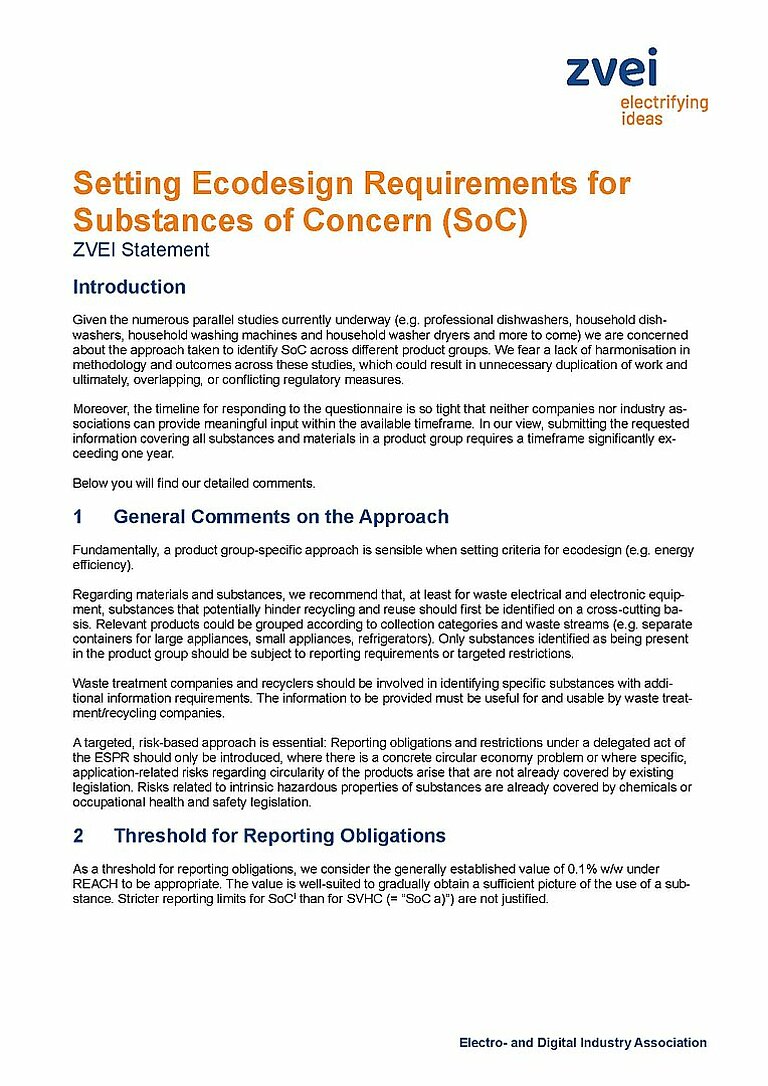Publications
![[Translate to Englisch:] [Translate to Englisch:]](/fileadmin/user_upload/Presse_und_Medien/mediathek/YouTube-Vorschaubild/NOA-Namur-Open-Architecture-Connectivity.jpg)

ZVEI strongly criticizes the current approach to defining product-specific information requirements for substances of concern (SoC) under the Ecodesign for Sustainable Products Regulation (ESPR). These requirements are being developed for the product groups listed in Working Plan 1, some of which are represented by ZVEI. The ongoing parallel studies – and especially their outcomes – risk overwhelming the industry, particularly small and medium-sized enterprises. In some cases, this may even happen without delivering tangible benefits for the environment or human health.
One of the main concerns is the extremely short consultation period of just four weeks. Within this timeframe, it is not feasible to collect or provide the requested comprehensive information on all substances within a product group. As a result, many affected companies are unable to contribute meaningfully to the consultation process.
Beyond this, ZVEI expresses fundamental concerns about the overall methodology used to define information requirements or potential substance restrictions under ESPR:
In ZVEI’s view, reporting obligations under ESPR should only be imposed where there is a concrete risk to the circular economy. Defining substances of concern based solely on hazard classes is not a sufficient basis.
You can download ZVEI’s full statement (including follow-up questions on the current process) here.